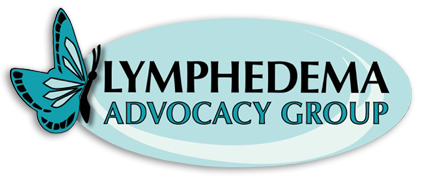October is Breast Cancer Awareness month, which presents a variety of opportunities to also raise awareness about lymphedema and support for the Lymphedema Treatment Act.
Nearly everyone is already aware of breast cancer but few know about lymphedema, the common side-effect of treatment for breast cancer. Please take this opportunity to help raise awareness by forging a public link between breast cancer and lymphedema.
Here are several ways you can make a difference this month:
- Distribute our information cards at local events, which we are happy to send you free of charge. Just email us ASAP by replying to this email, and include the quantity you need and your mailing address.
- Send a letter to the editor. You can send to both local and national newspapers in one step through our website! Just visit the Write the Media page of our website to get started. To help you compose your message some talking points are below my signature.
- If you or a loved one is a breast cancer survivor please contact local and national breast cancer organizations to stress the importance of improving insurance coverage for lymphedema treatment. Urge them to support the Lymphedema Treatment Act and work with us to ensure passage of this important bill.
- Write your members of Congress. You can personalize the template letter available at our general submission formor submit your own custom letter.
Thank you so much for your help!
Heather Ferguson
Founder and Executive Director
Lymphedema Advocacy Group
www.LymphedemaTreatmentAct.org
info@LymphedemaTreatmentAct.org
Letters to the editor:Remember to include why this topic is important to you, and keep in mind that the shorter your letter the better the chance of it being printed.
Some talking points for you to consider are:
* Lymphedema is a common side effect of breast cancer treatment that affects 20% of all survivors.
* Symptoms can appear soon after treatment, or not for years or even decades.
* Lymphedema is a chronic disease, and when not properly managed it can have a profoundly negative impact on a person’s health, function and quality of life.
* Medicare, as well as many Medicaid and private insurance plans, do not cover the medically necessary compression garments that are the mainstay of lymphedema treatment.
* Breast cancer patients deserve to be adequately informed about their risks, and should they acquire lymphedema, no insurance plan should fail to cover the compression garments that are essential to managing this life-long condition.















